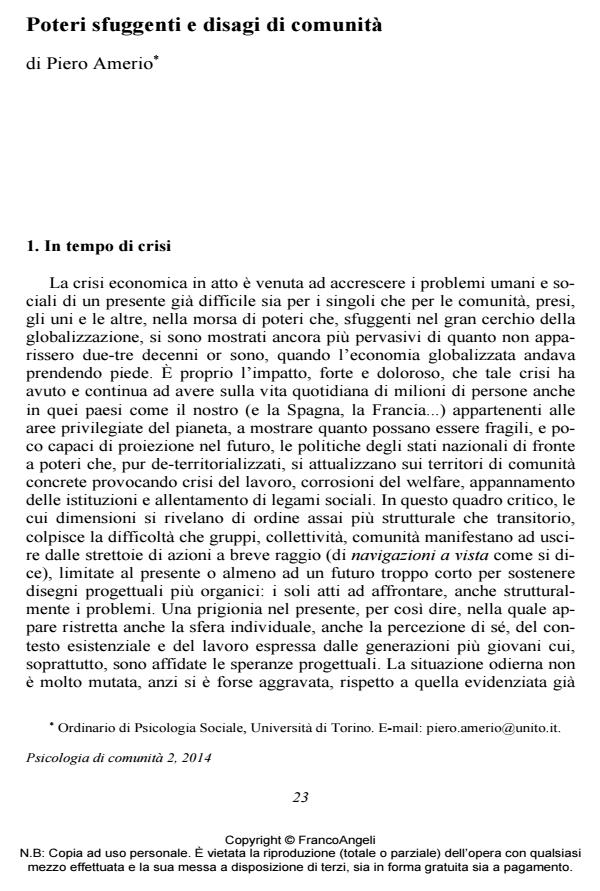Elusive powers and community discomforts
Journal title PSICOLOGIA DI COMUNITA’
Author/s Piero Amerio
Publishing Year 2015 Issue 2014/2
Language Italian Pages 23 P. 23-45 File size 94 KB
DOI 10.3280/PSC2014-002003
DOI is like a bar code for intellectual property: to have more infomation
click here
Below, you can see the article first page
If you want to buy this article in PDF format, you can do it, following the instructions to buy download credits

FrancoAngeli is member of Publishers International Linking Association, Inc (PILA), a not-for-profit association which run the CrossRef service enabling links to and from online scholarly content.
The National states are facing serious governance problems, due to the globalized economic and financial powers that operate in the de-territorialized sphere. Our country specifically is suffering hardship, as the economic crisis, while damaging the labor market, is exacerbating the social and existential situation of million of individuals, while at the same time increasing uncertainty, job insecurity, distrust in institutions, and lack of citizen participation. Such a picture is analysed according to a psychology community approach, based on the close connection between the personal sphere and the concrete material and social conditions. This perspective centralizes the impact of job transformations on the individual habits and on the social fabric; the personalization of politics and the political leaderships; the need for projections of the future that can unveil to the subjectivity paths for voice and actualization in the participatory and societal domain.
Keywords: Globalization, uncertainty, power.
Piero Amerio, Poteri sfuggenti e disagi di comunità in "PSICOLOGIA DI COMUNITA’" 2/2014, pp 23-45, DOI: 10.3280/PSC2014-002003